Fifer Steven Brown freely admits he’s always been a snorer.
It was so bad his wife of 17 years was forced to wear ear plugs to have even a chance of a good night’s sleep.
Steven had always tried to make light of it. Until he started to feel drowsy and fall asleep during daily life.
It was then he knew he had to seek help.
Little did he know he’d been living with sleep apnoea – a medical condition that meant his breathing stopped several times a night.
As part of our series on sleep, Steven talks to us about his health journey.
“My wife Lesley has always said I’ve been a heavy snorer,” Steven explains.
“But I always joked and said it can’t be that bad as it doesn’t wake me up!”
But three years ago Steven, 48, noticed other changes.
Spilling the tea
“I just felt something wasn’t right. I’d have what I thought was a night’s sleep, get up and make a cuppa.
“Then I’d fall asleep holding it and spill it down myself,” he says.
“We’d be chatting away on the couch after dinner, Lesley would turn around and I’d fallen asleep.
“I’d fall asleep on planes and sitting beside my grandchild. When I was at the computer for work, I’d feel myself nodding.
“I thought, ‘what’s going on?'”
Getting up in the night
And it wasn’t just daytime that was a problem for Steven.
“I’d go to bed and read my Kindle then the next thing it would hit me on the face as I’d fallen asleep with it in my hand.
“I was also getting up three or four times a night too.
“I was angry all the time, just crabbit at the world,” Steven, a photographer from Glenrothes, continues.
“I thought it was because I work shifts, maybe I was working too much or it was age-related.
“But it kept getting worse. If I was driving long journeys I’d have to pull over and go for a walk to stay alert.
“It was starting to be so disruptive.”
Steven admits he ignored problems for a few months.
But Lesley convinced him he needed to see a GP, so he made an appointment.
‘I was in full denial’
It was then he and Lesley were given a questionnaire to answer.
“We both had to answer separately on questions including do you snore, how often do you fall asleep.
“We both had completely different answers of course – because Lesley could see exactly what was happening and I wasn’t aware I was falling asleep all the time.
“The doctor said I had sleep apnoea. But I was in full denial – even when the appointment for the sleep clinic in Edinburgh.”
Overnight sleep tests
Steven was asked into Edinburgh’s Royal Infirmary for an overnight appointment so consultants could monitor his sleep.
“It was a totally alien environment, but a bit like walking into a room at the Premier Inn!” says Steven.
Electrodes were attached to Steven and a video camera filmed him while he slept.
“Even as they were putting on the 16 electrodes on my body and head I was in denial!,” he admits.
“It took me ages to fall asleep. But I felt that I had a good night’s sleep.”
A nurse came to take off the electrodes, Steven explains: “I asked her – ‘Do I snore then?’ and she replied – ‘Oh yes. We’ll get interesting data from this.’
“Then I said ‘do I have sleep apnoea?’ She said ‘very much so, you’ll be hearing from us soon.”
Just four days later Steven received a phone call from the hospital asking him to come in immediately.
Severe Obstructive Sleep Apnoea diagnosis
Steven’s consultant revealed startling results – and a diagnosis of Severe Obstructive Sleep Apnoea.
Steven explains: “I was told a normal person has on average five or fewer episodes a night where they stop breathing for more than 10 seconds.
“During the night I spent at the sleep clinic, I’d had 149.7. Which put me at the top of the scale.
“When I was snoring, my throat was shutting and stopping me breathing, leading to my brain going into action and bringing me out of a deep sleep.
“I’d probably only had about three hours sleep a night, for years.”
Getting used to the sleep machine
The ‘sleep machine’ Steven was given is called an APAP.
It automatically adjusts to meet each specific person’s breathing needs, which often change throughout the night as we move in and out of different stages of sleep.
Other sleep apnoea sufferers may have a CPAP machine, which has one continuous setting.
“It’s no bigger than a shoe box, with a long hose and a mask. It has straps at the back of your head to keep it in place,” Steven explains.
“I was so embarrassed I had to have it and didn’t want to have to go to my bed wearing this apparatus on my face and head.
“The first night it felt strange and horrible. I didn’t like it at all as it felt so claustrophobic.
And when you first switch it on it makes a noise like someone slurping out of a cup as it creates a seal and adjusts the pressure.”
‘I felt alive…it was life-changing’
“But that first night, I don’t remember falling asleep.
“I remember trying to work out if I could hear the machine, then the next thing was I was switching the alarm off at 8.30am!
“I felt alive. It was incredible.”
Steven felt full of energy – so much so he got up and dressed before hoovering and then cutting the grass!
“I’d slept nine hours. It was life-changing, like someone had given me Red Bull through the night!”
And over the weeks and months, Steven has become used to his ‘sleep machine.’
No more ear plugs!
“I’m now only having about three episodes a night and the machine regulates that so I’m not coming out of a deep sleep.
“Looking back and knowing I could have fallen asleep driving is terrifying.
“It’s really changed my life, it’s incredible.
“And I’m so much better now that Lesley doesn’t need to wear her ear plugs anymore!”
- Click here for more information about sleep apnoea support in Tayside.
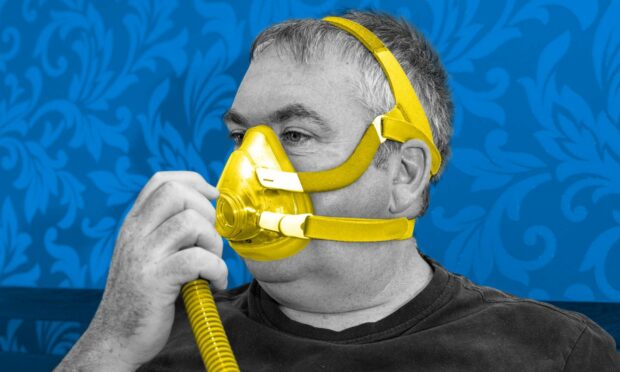
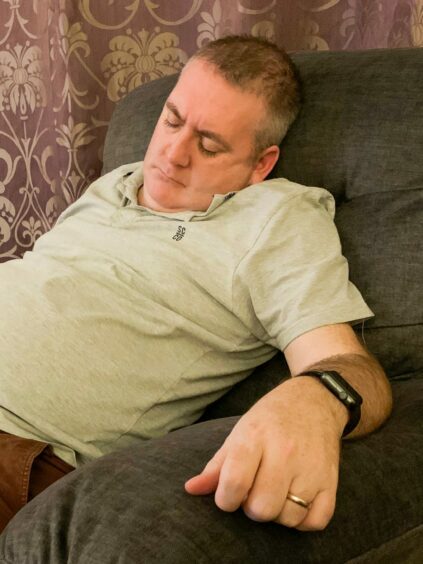
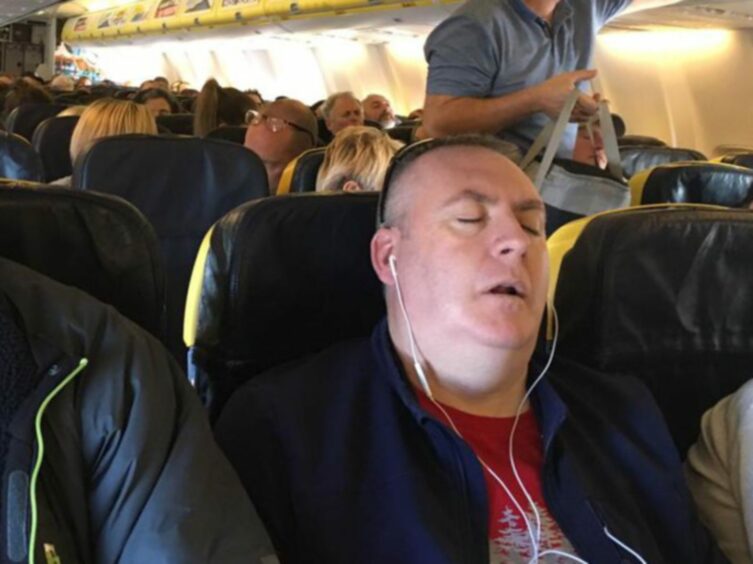
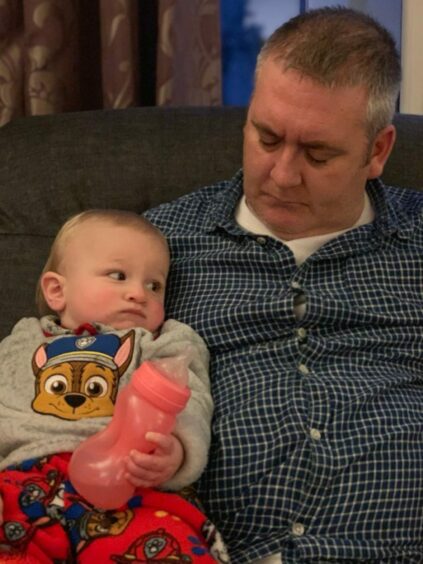
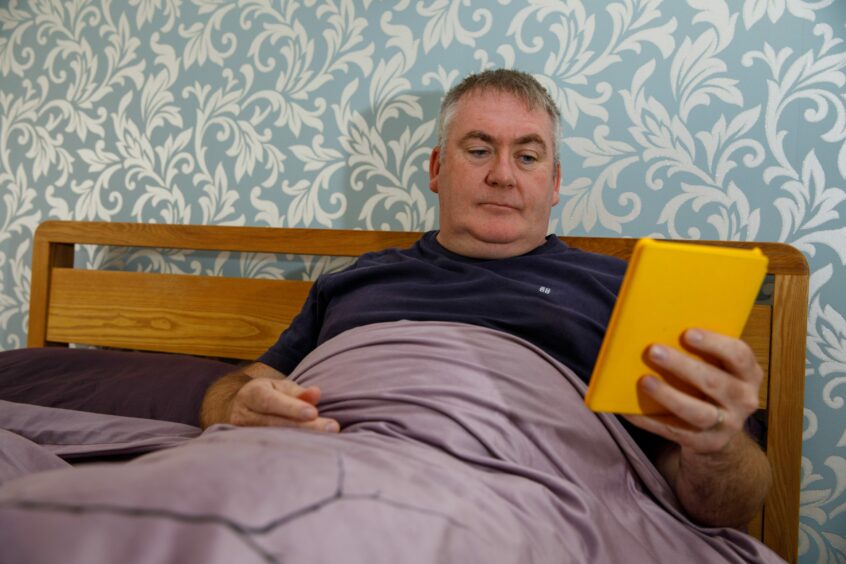
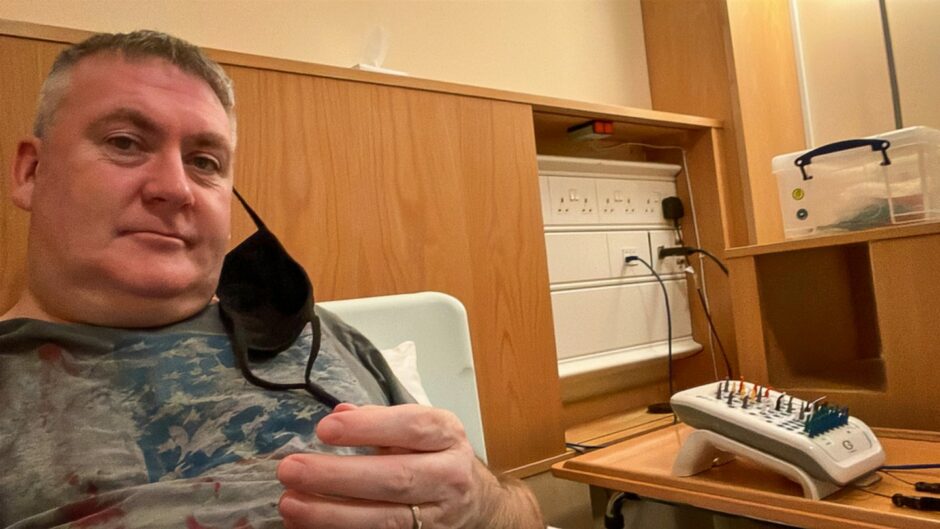
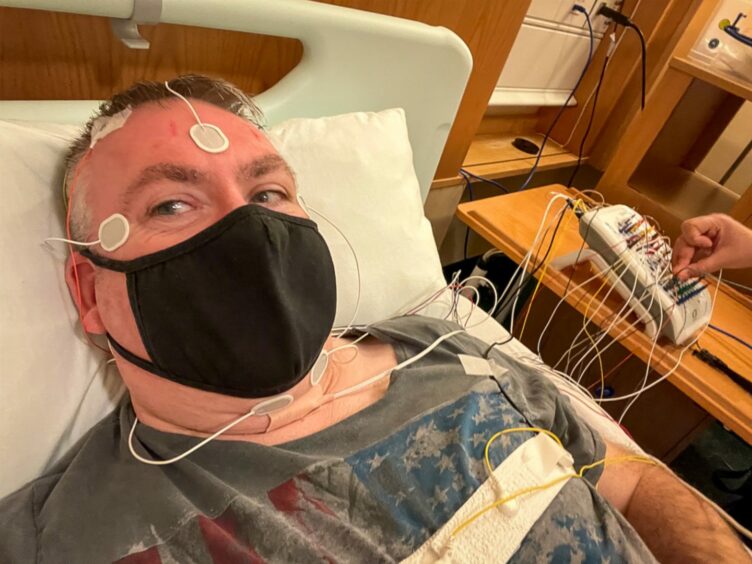
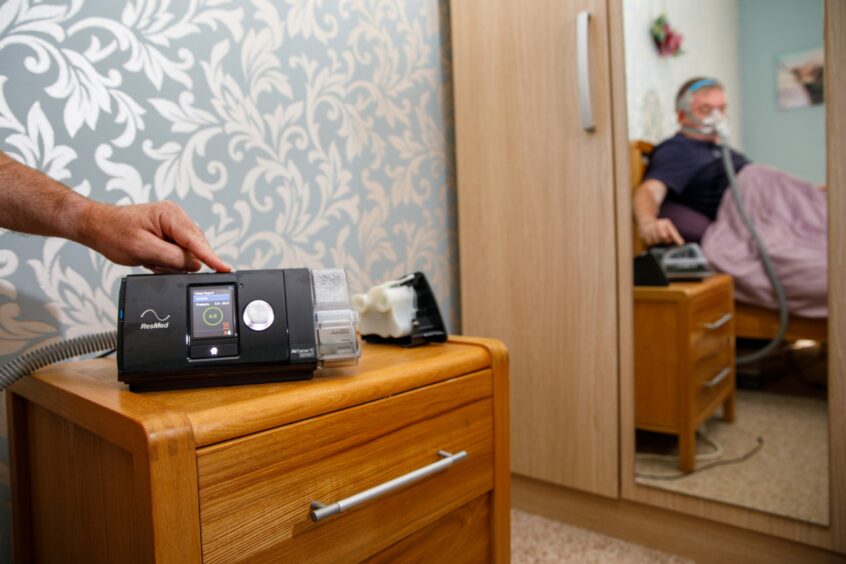
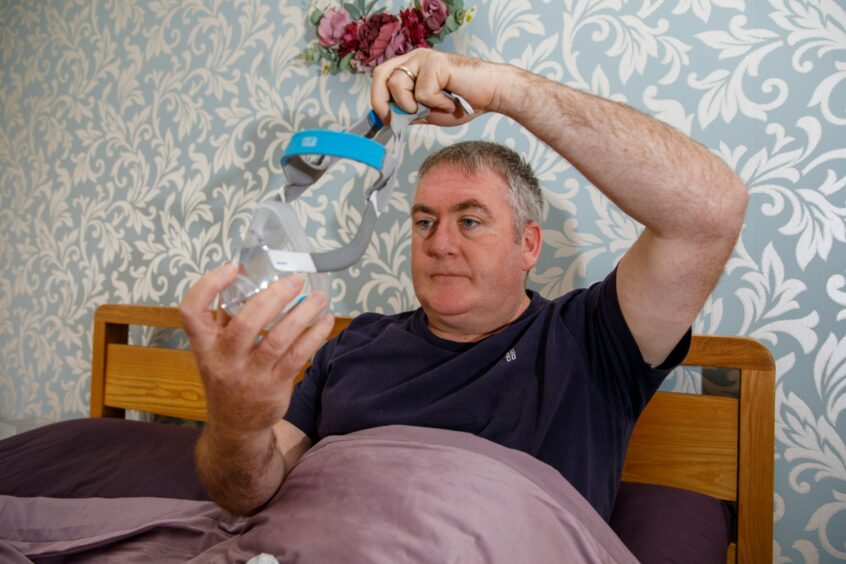
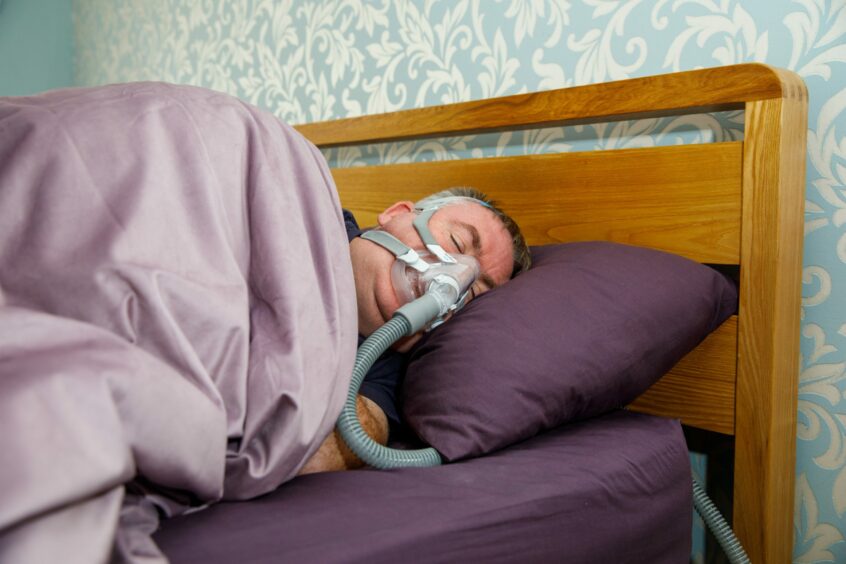
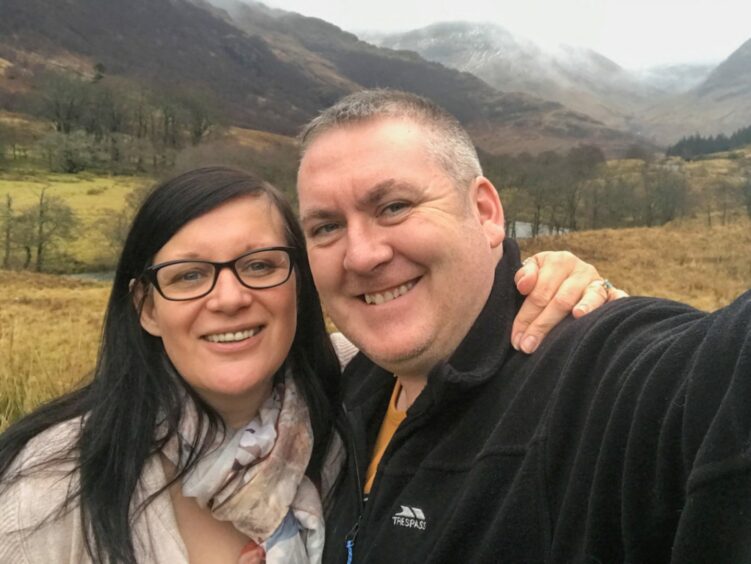









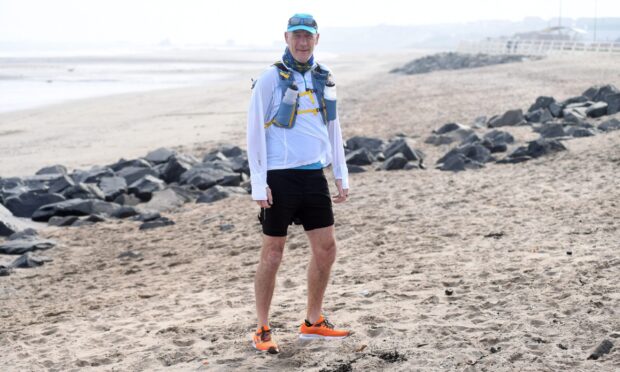
Conversation